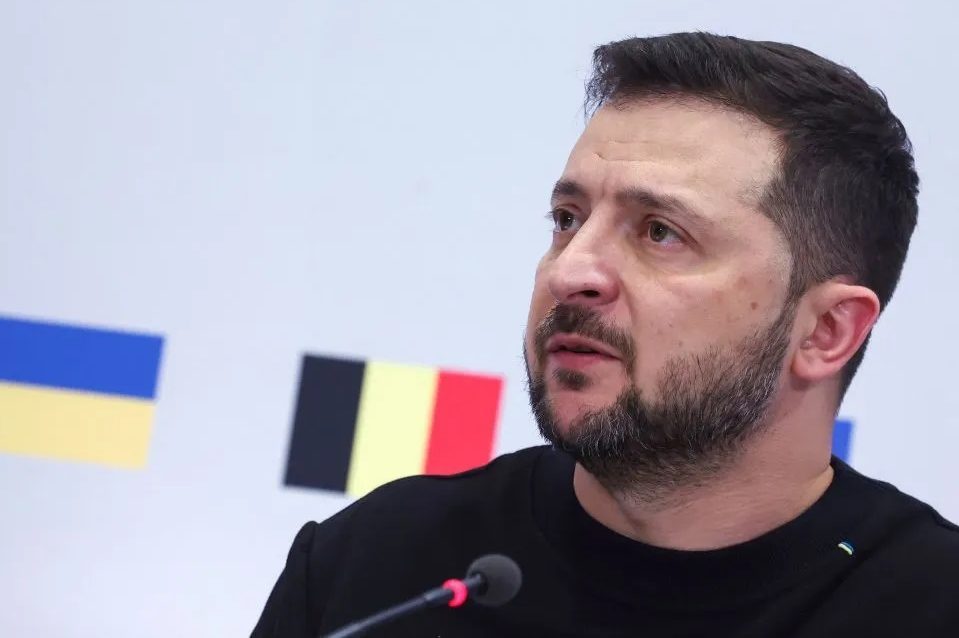There’s a very different tone coming from Kyiv these days. Speaking to TIME magazine, Volodymyr Zelensky had just returned from Washington after failing to make another impassioned public address on Capitol Hill, and not even managing to get on Oprah. The Ukrainian president sounded angry. The constant struggle to maintain international support seems to be taking its toll. “Nobody believes in our victory like I do. Nobody,” he insisted, but added that dragging Ukraine’s allies along with him “takes all your power, your energy… It takes so much of everything.”
Meanwhile, in the Economist, General Valery Zaluzhny, commander in chief of the Ukrainian armed forces, and another icon of national resilience, acknowledged that the war had become stalemated, “just like in the first world war.” Although he claimed “Russia has lost at least 150,000” — incidentally, this is around three times more than what western government estimates — he recognized that Moscow shows no signs of coming to terms, and warned that unless Ukraine receives even more advanced weapons, the conflict could bog down into “an attritional trench war” that “can drag on for years and wear down the Ukrainian state.”
In part, and on a very human level, it would be reasonable that both men would be tired, even dispirited. Zelensky has kept up a punishing schedule of foreign travel and public addresses, in his role as Kyiv’s booster-in-chief. Zaluzhny has been managing his side of the largest land war in Europe since 1945, and one in which Ukraine’s capabilities are often determined by how far and how quickly foreign backers want to arm it.
Meanwhile, Zaluzhny’s recognition that “there will most likely be no deep and beautiful breakthrough” is perhaps rather self-evident. The Ukrainian summer offensive, while delivering disproportionate damage to Russian troops and capabilities, has failed to make the hoped for, or even expected, territorial gains. The days when Ukraine’s most breathless partisans were confidently anticipating that its troops would take back Melitopol or make their way to the Azov Sea coast are long past. Even the interim target of the road and rail hub of Tokmak now seems unlikely to be reached, although it is in range of Ukrainian artillery.
In these circumstances, the statements of the two Zs appear to reflect a strategy of balancing realism with PR. They have to acknowledge that the counter-offensive has had much less impressive results than touted and expected, while maintaining morale at home. Opinion polls still show rock-solid support for Zelensky and also for the continued prosecution of the war through to complete victory. However, in practical terms, things aren’t so clear. Certainly the Ukrainian conscription process is having to be increasingly coercive. And there are fears that if Moscow is able to significantly disrupt Ukraine’s energy supplies again this winter, then there may be something of a political backlash.
At the same time, the two men are also calibrating how to keep the West engaged and supportive, especially as events in the Middle East suddenly consume media, public and policymaker attention. One Ukrainian official rather solipsistically grumbled that “Neither Hamas nor Israel are doing us any favors.”
Whereas recently Kyiv’s line was “give us more, and we can win quickly,” now it is becoming “give us more, or this will drag on indefinitely.” In this, they are trying to play to fears that a conflict that has already cost the West more than $250 billion just in direct aid in the first eighteen months, could become a “forever war.” (Ironically enough, this is also central to Vladimir Putin’s strategy, as he tries to sap western will and unity.)
After all, although Ursula von der Leyen may airily reject that there is any “Ukraine fatigue” in the West, Italian prime minister Georgia Meloni rather let the cat out of the bag when, thinking she was talking to an African Union official and not a pair of notorious Russian telephone pranksters, admitted that “there is a lot of fatigue… from all the sides,” such that “we’re nearing the moment in which everybody understands that we need a way out.” Meanwhile, many officials in the United States are operating to a “Trump timeline,” trying to ensure that the conflict is settled or that military momentum is irrevocably behind Kyiv before a potential change in government.
Drawing on the idiom of his showbiz past, Zelensky recognizes the risk: “we see that as soon as [people in the West] start to get a little tired, it becomes like a show to them: ‘I can’t watch this rerun for the tenth time.’” His — and Zaluzhny’s — job is to keep us engaged.
This article was originally published on The Spectator’s UK website.


























Leave a Reply